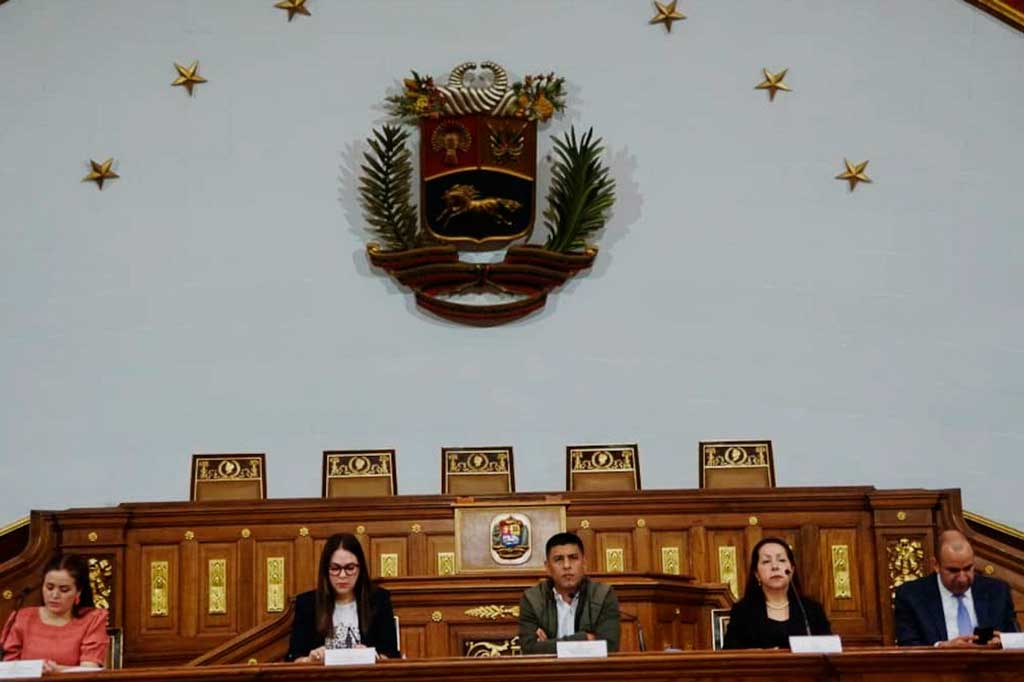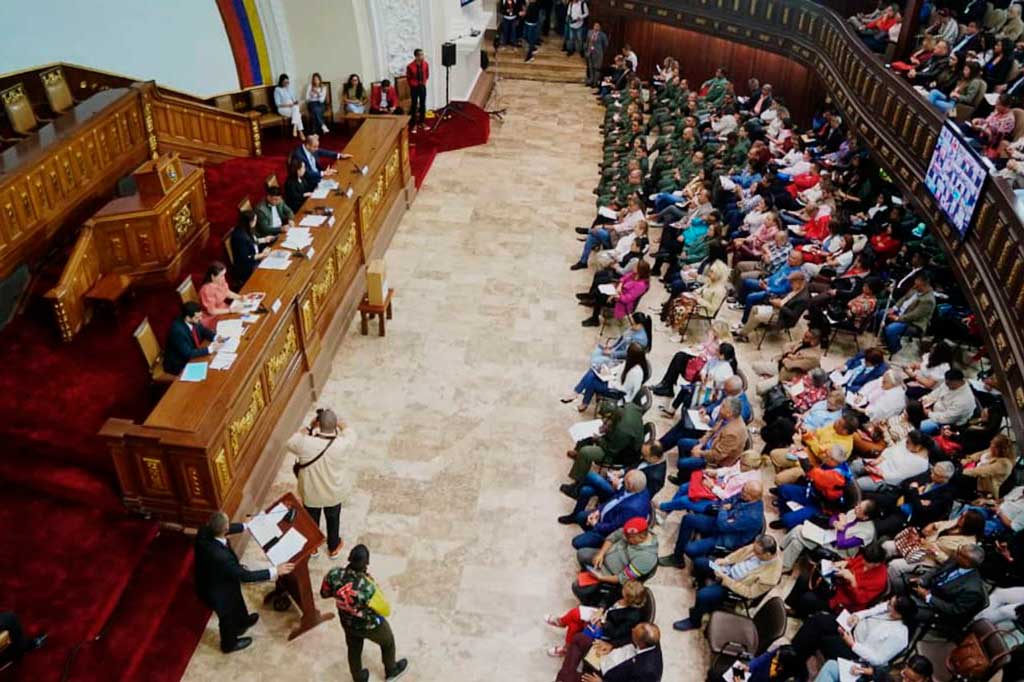The meeting was presided over by the First Vice President of the Venezuelan legislative body, Pedro Infante. It was attended by parliamentarians, security organizations, representatives of the public institutions, the Popular Power, and university students and youngsters from other levels.
This proposal for public consultation was approved on Tuesday in an ordinary session of the Parliament, at the initiative of the legislator Diosdado Cabello, and will be extended nationwide.
The lawmaker representing the Great Patriotic Pole recalled that during those days, in several regions of the national territory, “terrorist acts of deep hatred had been committed by opposition sectors that do not believe in electoral processes.” They did not recognize the Supreme Court of Justice, the National Electoral Council, nor other State institutions.

Infante stated that the National Assembly took accountability for accelerating both the debate and execution of the Laws,” as President Nicolas Maduro requested days earlier, after the hate crimes and violence unleashed by the so-called ‘comanditos’ of the right-wing, following the electoral results.
The official data revealed that on July 29 and 30, a total of 25 people were killed by vandalizing and terrorist acts in several states of the nation, and 129 were injured, the vast majority of them supporters of Chavism.
The parliamentary vice president explained that the initiative seeks to ensure that these actions do not go unpunished, “not allowing this type of expression in our country.”
Meanwhile, legislator Jesús Suárez proposed to drive preventive education as an antidote against fascism and an indispensable weapon of knowledge at all levels.
The president of the Permanent Committee of Security and Defense of the Nation noted that education is the best tool to build up a future, in which democracy, peace, and the guarantee of human rights prevail.
In this sense, the authority values that it can prepare society to recognize and reject any form of hatred and discrimination.
The bill consists of four chapters, and 30 articles aiming to establish the means and mechanisms to preserve peaceful coexistence, public tranquility, the democratic exercise of the popular will, and the recognition of diversity and tolerance.
The bill has a special chapter dedicated to social networks, described as a “new methodology” designed to promote hatred and violence, over “tolerance, love and coexistence.”
jrr/omr/npg/jcd










